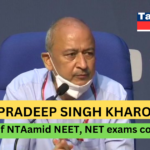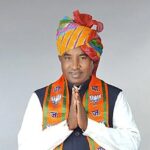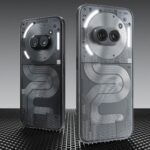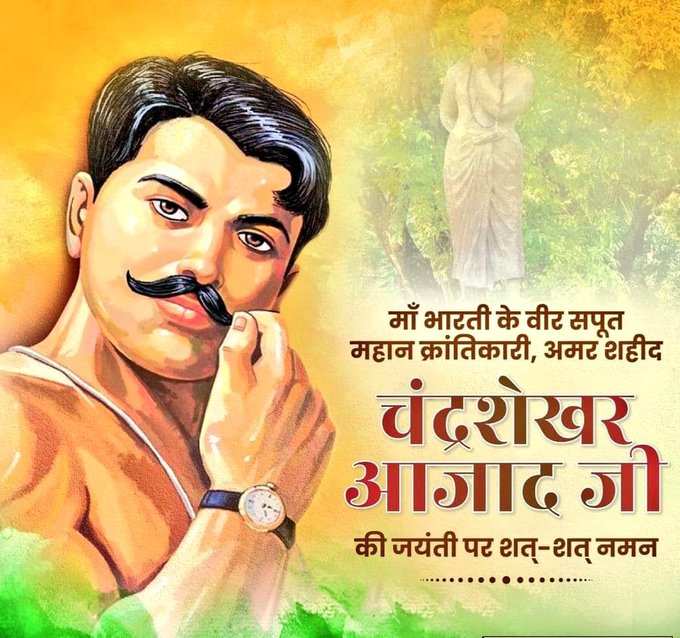
The Spirit of Fiery:
Chandra Shekhar Azad, born in 1906 as Chandrashekhar Tiwari, became known as a courageous revolutionary. His name, Azad, which means “free,” was a testament to his determination to free India from British domination. Even throughout the worst of the colonial tyranny, Azad’s fierce spirit never went out.
The Link Between Jallianwala Bagh
For Azad, the 1919 Jallianwala Bagh massacre had a lasting impact. His determination was strengthened by seeing innocent souls taken by British gunfire.
He joined Mahatma Gandhi’s Non-Cooperation Movement but quickly saw that nonviolent resistance was insufficient on its own.
The Socialist Republican Association of Hindustan (HSRA):
Azad was a founding member of the HSRA, a militant organization dedicated to fighting the British with guns. Rajguru, Sukhdev, and Bhagat Singh were among his allies. The HSRA supported direct action, going against British officials and other representations of colonial authority.
The Indian equivalent of Robin Hood
Azad gained the nickname “Robin Hood of India” for his valiant deeds. To finance the revolution, he pilfered from the public coffers. The British authorities were taken aback by his daring and dexterity. Azad was too elusive for them to capture.
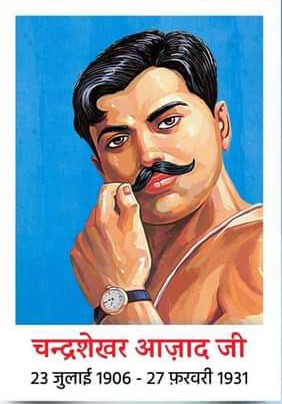
The Meeting at Alfred Park:
Azad was besieged by the British in Allahabad’s Alfred Park, which is now Chandrashekhar Azad Park, in 1931. He battled bravely and killed himself to escape arrest rather than give up. “You will never catch me alive,” he said in his iconic words.
The Heritage Persists:
Generations are inspired by Azad’s legacy. His dedication to sacrifice, justice, and freedom is still important today. His name is attached to parks, schools, and other establishments as a tribute to his steadfast attitude.
In summary:
In addition to being a revolutionary, Chandra Shekhar Azad was a symbol of resistance. His example shows us that freedom must be claimed rather than given.
Let us continue Azad’s flame—the never-ending pursuit of an authentically Azad Bharat—as we honor him.

